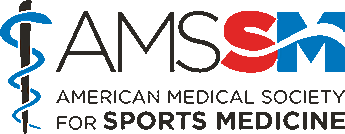 Background Athletes and non-athletes have widely used nutrition and supplements to improve mental or physical performance on and off the field. One of the most consumed substances in the world is caffeine, a stimulant marketed in various forms for things like wakefulness, headaches and even athletic performance. Caffeine is naturally found in plants but commonly in products such as coffee (80 to 100 milligrams per 8 ounces), tea (30 to 50 milligrams per 8 ounces), sodas (30 to 40 milligrams per 12 ounces), energy drinks (40 to 250 milligrams per 8 ounces), foods, and workout supplements. The liver processes caffeine, which then acts on the brain and inhibits the effects of another molecule in the body called adenosine. Ultimately, this process leads to the effects of caffeine that most people have experienced. The benefits and mechanisms of caffeine used for athletes remain controversial. Still, most research supports the benefit of caffeine for endurance performance, including sports like cycling, running, cross-country skiing, and swimming. Symptoms/Risks The symptoms of appropriate caffeine use may include increased alertness, decreased fatigue, improved reaction time and even decreased appetite. The Food and Drug Administration recommends limiting total caffeine intake to not exceed 400 milligrams per day from all consumed sources for adults. In contrast, the American Academy of Pediatrics discourages caffeine consumption by children and adolescents. With increased use, the risk of adverse side effects rises, which can vary from person to person due to genetics, weight and chronic use differences. These side effects can include tremors, high blood pressure, high heart rate, poor sleep, upset stomach, nervousness, chest discomfort, dehydration and even death at high enough doses. The risks of these side effects make appropriate use an essential consideration when using caffeine for mental or physical performance. Sports Medicine Evaluation & Treatment Sports medicine physicians have trained to understand the physical demands placed on athletes and provide individualized counseling regarding nutrition and supplements like caffeine. A visit with a sports medicine physician would include reviewing your goals, medical history, diet and experience with caffeine to create a safe nutrition plan to help you perform your best. Depending on your situation, your physician may recommend additional counseling with a sports medicine dietician to help you reach your goals. Injury Prevention It is critical to dose caffeine correctly to prevent injury or undesirable consequences. Dosing must be individualized because this drug affects people differently, even at similar dosing. The current recommendation for adults is to use approximately 200 milligrams of caffeine to improve cognitive function. When using caffeine to enhance athletic performance, research suggests consuming 2-6 milligrams per kilogram of body weight 15 to 60 minutes before exercise. Return to Play Responsible caffeine use should not prevent an athlete from returning to play a particular sport or remaining active. The World Anti-Doping Agency (WADA) continues to monitor caffeine as a performance-enhancing drug annually. Still, it has lifted its ban on caffeine since 2003. Nevertheless, guidelines for appropriate use in high-level athletes exist. The National Collegiate Athletic Association (NCAA) and the International Olympic Committee (IOC) recommend specific allowable amounts of caffeine in urine before athletic events. Exceeding these recommendations may result in a violation of competition rules and can affect return to play. These organizations can offer additional information at their websites: www.ncaa.org/drugtesting and https://olympics.com/ioc/fight-against-doping. AMSSM Member Authors References Category: [Back] |

